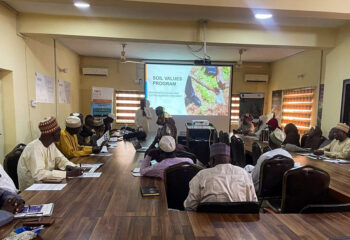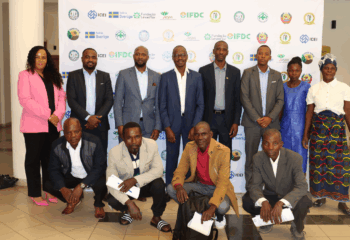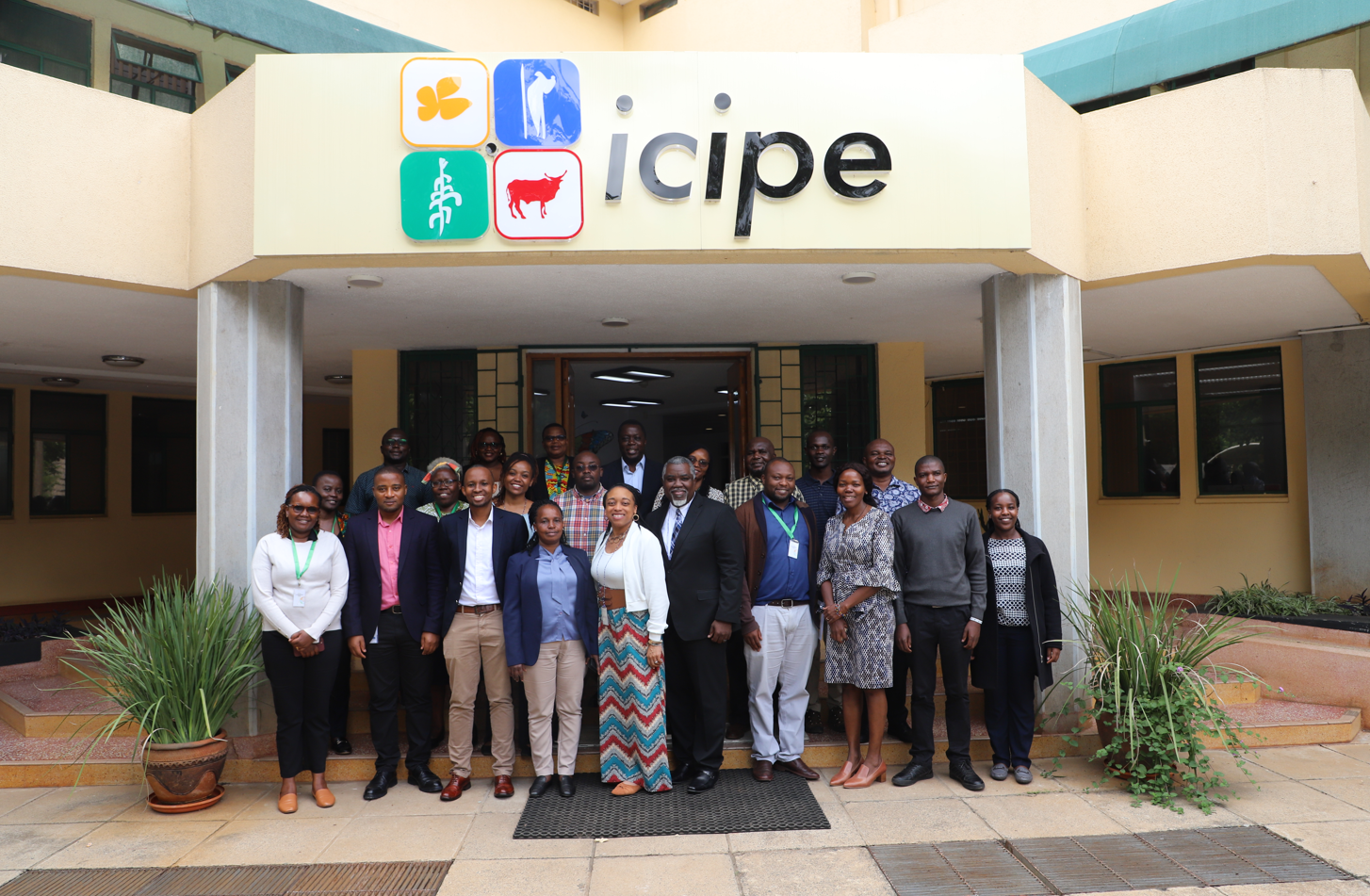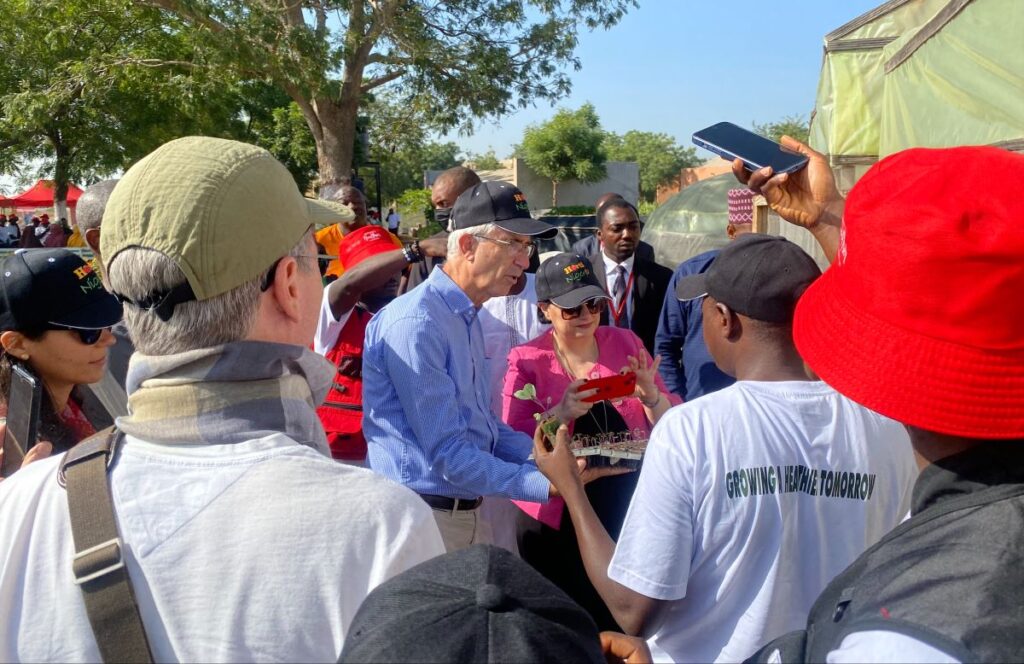
The HortiNigeria program recorded a significant milestone on October 27, 2023, as the program hosted a distinguished group of diplomats led by Wouter Plomp, the Ambassador of the Embassy of the Kingdom of the Netherlands to Nigeria. This exclusive delegation, including ambassadors from Finland, Spain, Belgium, and France and the head of the European Union, visited the HortiNigeria Learning Site at Sa’adatu Rimi College of Education in Kano to explore cutting-edge agricultural technologies and solutions.
The day was filled with excitement, as the diplomats embarked on a journey through the world of horticulture, seeing the vegetable production process from nursery bed establishment to transplantation. The HortiNigeria Learning Site serves as a hub for research and hands-on learning in the field of horticulture for farmers as well as students within the college.
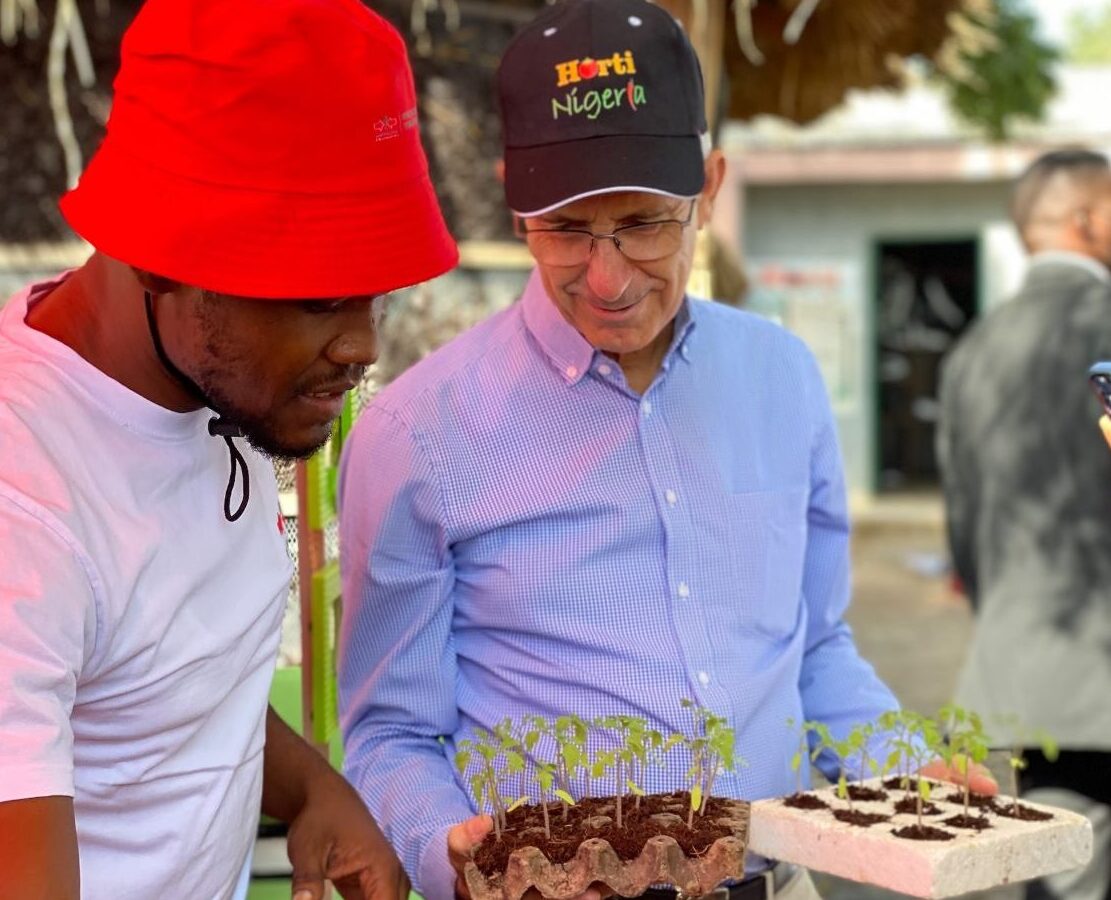
Plomp in particular was eager to observe the technological advancements because the Netherlands is renowned for its innovative agricultural practices and expertise, making it a natural partner in endeavors to bolster Nigeria’s agricultural landscape. His enthusiasm set the tone for the day, and the other ambassadors followed suit.
One of the standout areas of interest during the visit was the innovative approaches to managing post-harvest losses in vegetables. Nigeria, like many other nations, grapples with significant losses of perishable produce after harvest. These losses have a direct impact on food security, economic stability, and sustainability. Plomp was keen to examine how technological solutions could make a difference in this crucial aspect of agriculture.
With a mission to build a sustainable and inclusive horticulture sector, the Learning Site has become a symbol of progress.
The site showcased a range of post-harvest technologies, including cold storage solutions, packaging innovations, and quality control measures. These initiatives aim not only to reduce losses, but also to increase the shelf life and marketability of vegetables. The ambassadors were impressed by the HortiNigeria team’s dedication to this field.
Plomp shared his enthusiasm, saying, “It is fantastic to be here even though the time is short, but we will be back and give more time to our visit. We have seen not only how new agricultural products are being produced but also a new generation of farmers emerging. That’s what Nigeria needs, that’s what Africa needs, and that’s what the world needs. I can see potential in Africa, especially Nigeria and Kano state, being the breadbasket for the whole region and beyond.”
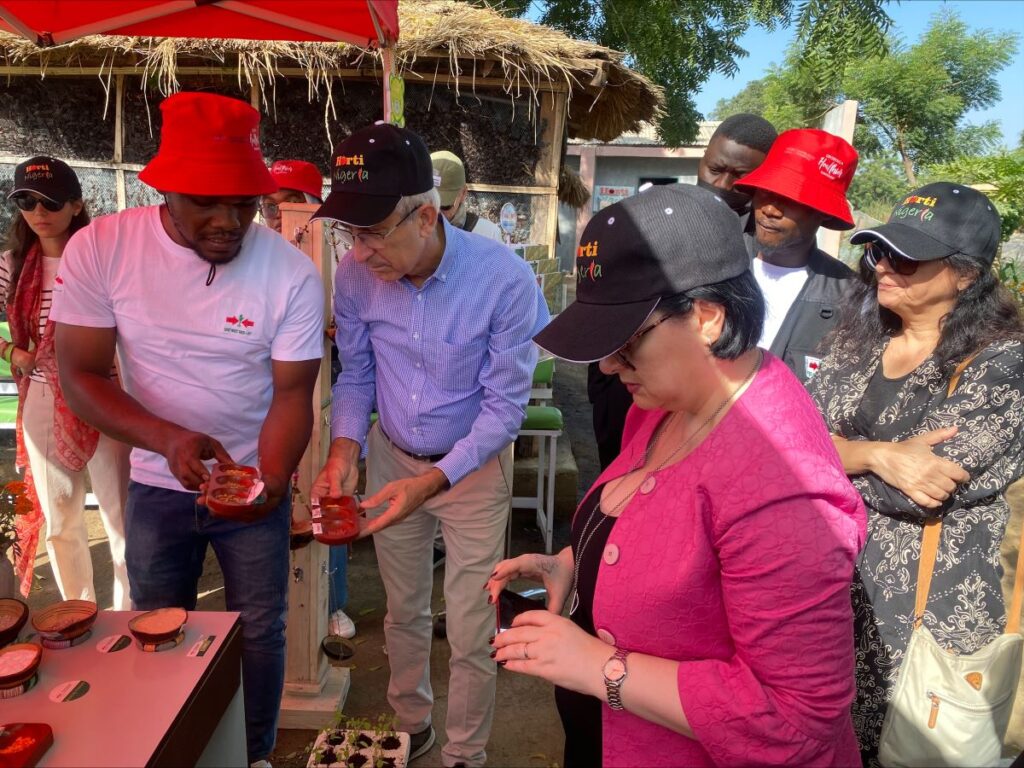
As the delegation toured the various sections of the HortiNigeria Learning Site, they engaged in lively discussions with the field experts. It was a testament to the importance of international collaboration in addressing global challenges, such as food security and sustainable agriculture.
The HortiNigeria Learning Site has demonstrated the strides being made in agricultural technology and sowed the seeds of diplomatic cooperation in a field that holds the promise of transforming the nation’s food production and security.
HortiNigeria (2021-2025) is implemented through a consortium led by IFDC that includes East-West Seed Knowledge Transfer (EWS-KT), Wageningen University and Research (WUR), and KIT Royal Tropical Institute and is funded by the Embassy of the Kingdom of the Netherlands in Nigeria.

